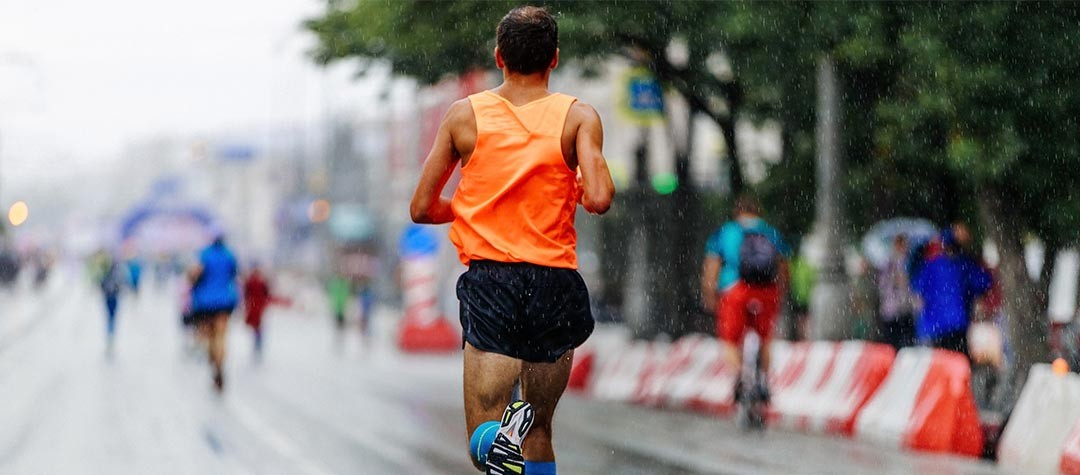Running is the perfect fitness regime for women wanting to get fit, lose weight, de-stress or just get away from it all. So what factors do women need to consider when starting out in running?
Running trainers
Choice of running shoe is the single most important consideration for the runner. Running shoes should be a snug fit around the heel, supportive in the midfoot and roomy in the forefoot. To ensure you get the correct training shoes for your needs, visit a specialist running shoe retailer for a proper fitting.
The assistant should be able to carry out a full assessment of your running gait and then recommend several pairs of shoes according to how you run. From these you’ll be able to test run multiple pairs of shoes on a treadmill and find the one that is most comfortable for you.
Sports bras and breast injury
Around half of women experience breast pain whilst running. A well-fitting sports bra is essential to avoid discomfort and possible permanent damage to the Coopers ligaments in your breasts. Your sports bra should fit snugly with no bulges and should significantly reduce the amount of movement in the bust when you imitate your running movement.
Safety consideration for women runners
Unfortunately women runners do have to take steps to ensure their safety if they intend running on their own. When going out running alone, always:
- Let someone know where you are going and how long you expect to be.
- Take a mobile phone with you.
- Consider carrying a safety alarm with you.
- If you run while listening to music, just wear one headphone so you can hear what is going on around you.
- Vary your route.
- Avoided secluded areas.
Nutritional needs
Just because you are doing some training doesn't mean you can get away with eating what you like. However, if you are exercising intensively you need be meeting your body’s needs, particularly regarding carbohydrate, calcium and iron intake. Make sure you keep hydrated, drinking at least two litres (approx 70 fl oz) of water per day, plus up to a litre of water extra for each hour of training.
Iron is a particularly significant factor for women, especially given that studies have shown that more than half of all women runners are deficient in iron. Iron deficiency can result in fatigue and poor endurance, since the blood is unable to carry oxygen as efficiently to working muscles. Feeling cold is another tell-tale sign that iron levels may be low. Though a loss of iron does occur during menstruation, iron deficiency is generally considered to be due to a lack of iron in the diet.
A recent study reported that women distance runners usually get less than the recommended daily allowance of 15 milligrams. The highest loss of iron per day in top athletes can be up to 2mg. The decline in performance starts when the daily intake fails to meet this.
The solution to this is usually simple: eat more iron-rich foods. Lean red meat and dark poultry are considered excellent sources of iron. It's a fact that many women steer clear of red meat due to its fat content, but by choosing lean cuts you can meet your iron requirement while still maintaining a low-fat diet.
Vegetarian runners will be able to get a good source of iron from lentils and iron-fortified breakfast cereals. But if you’re eating a fortified breakfast cereal to boost your iron intake, make sure not to drink coffee or tea during your meal as these drinks block the body’s ability to absorb iron. If you need a drink with your breakfast then choose Vitamin C drinks such as orange juice which actually help the body absorb iron.
If you do have low iron levels, it may be wise to start taking a supplement, but check with your GP beforehand. Remember, too much iron can limit your body’s ability to absorb zinc and may also cause constipation. The best way to make sure you’re getting enough iron is to consume 2 to 4oz (57 to 113g) of lean red meat or dark poultry each day.
Running and pregnancy
Most women should be able to continue a running program in early stages of pregnancy. If you are planning on continuing running it should be discussed with your doctor first.
Naturally, if you weren’t a regular runner before you became pregnant, then now is not really the time to start.














